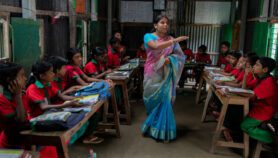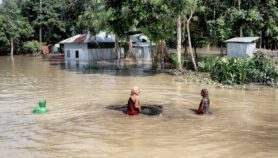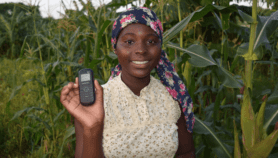Send to a friend
The details you provide on this page will not be used to send unsolicited email, and will not be sold to a 3rd party. See privacy policy.
Africa still relies heavily on expensive satellite connections to gain access to the Internet, according to a report released this month (July 23).
Over 80 per cent of African Internet use is routed through satellite connections, says the report by the South Africa-based telecommunications analysts BMI-TechKnowledge, who work in 40 African countries.
Efforts are underway to switch to using high-bandwidth fibre optic cables, with at least ten being built.
Engineering News reported BMI-TechKnowledge as saying that companies will spend more than US$6 billion on cable projects in the next two years.
Fast internet connections are essential for growth in business and other applications on the continent, but have so far either been expensive or rarely available.
Kenya, Nigeria, South Africa and Tanzania are the countries driving the demand for connectivity, according to Brian Nielsen, director of BMI-TechKnowledge.
"Currently all countries in East Africa and most in central Africa have no submarine cable connectivity and are relying on expensive satellite links from the United States and France," he told SciDev.Net.
Landlocked nations are most affected. "Countries on the West and South coasts have access to the third South Atlantic (SAT3) undersea cable," says Nielsen.
The private Seacom marine fibre optic cable, running from Madagascar and South Africa up to Egypt before branching to India and France will be ready by mid 2009.
But another project, the African West Coast Cable (AWCC), did not meet some of its July 2008 deadlines, reported Engineering News. Failure to finalise commercial and legal agreements means that the US$510 million cable through ten African countries will not be operational for its target date of the 2010 FIFA World Cup in South Africa.
And the East African Submarine System (EASSY) funded by the World Bank and the Development Bank of South Africa is behind schedule by at least a year (see Infighting plagues East African cable project).The cable will run from South Africa and Mozambique to Somalia, Sudan and Djibouti with terrestrial links to at least five landlocked African countries.
The US$2 billion Uhurunet broadband network project proposed by the New Partnership for Africa’s Development has not started, while other high-speed cable projects underway include The East African Marine System (TEAMS) from Kenya to the United Arab Emirates, due to start next year, and the Flag cable through the Horn of Africa.













